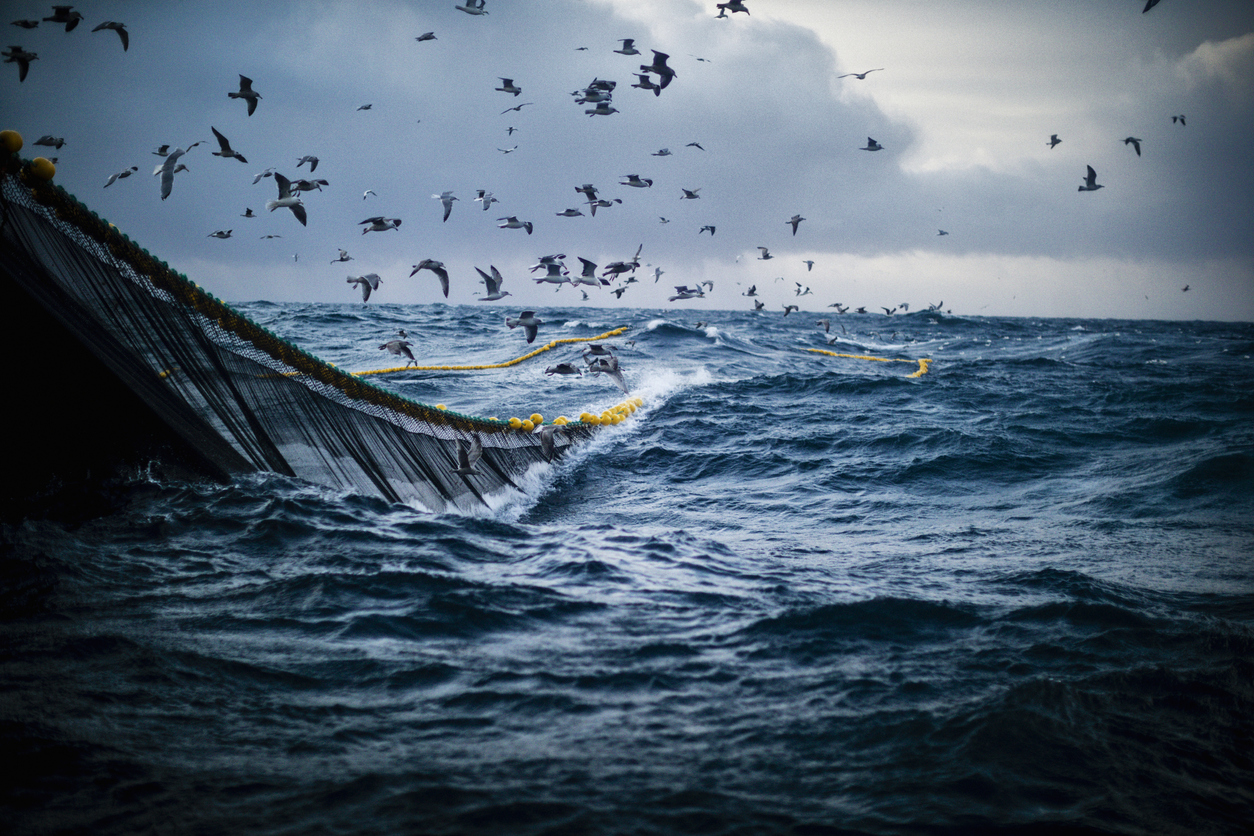Search press releases
Fisheries Brief no. 17: Prioritise the environment over a handful of jobs
Stick to the plan to save the Baltic cod
At the end of July, the Commission, prompted by the Baltic cod crisis, introduced an immediate ban on fishing for the rest of the year. Earlier this year the International Council for the Exploration of the Sea (ICES) recommended that no cod fishing involving the eastern stock should be permitted during 2020. Responsibility now rests entirely with the region’s fisheries ministers, who in October will make a decision on cod fishing in the Baltic Sea in 2020. Will they listen to the scientific advice from the ICES, which says that it will take years of fishing bans before we stand any chance of seeing an improvement in the stock? Or will they bow to pressure from short-term special interests?

Economic policy no argument for continued cod fishing
For the Baltic Sea environment and ecology, a multiannual ban on cod fishing is the obvious decision. It is a measure that should have been implemented many years ago, but the EU’s Common Fisheries Policy also stipulates that socioeconomic considerations, i.e. fishermen and coastal communities, be taken into account. Consequently, the fisheries ministers have continued to allocate quotas for a shrinking stock of Baltic cod by arguing that it supports employment in the fishing industry.
Following the recommendation from the ICES and the Commission’s emergency ban, the debate has started on what a ban on cod fishing means for the fishing industry. In Sweden, various stakeholders are trying to attract the attention of politicians and sway public opinion. Opinions differ. Some want the ban lifted, others want financial compensation from EU funds, and some want to be able to catch other fish.
Environmental protection must take precedence over commercial fishing
Professions and industries are constantly evolving. Old professions disappear and new ones emerge. The textile and shipbuilding industries are two examples in Sweden. This also applies to basic industries such as agriculture and forestry, which have undergone substantial changes, including as a result of new environmental requirements that have also forced many other professions, businesses and industries to adapt to completely new conditions, or disappear.
Professional fishermen cannot be exempt or have any special right to pursue their profession, especially when fishing stocks are threatened by overfishing. It is therefore odd for the Swedish Agency for Marine and Water Management (SwAM) to propose that cod fisherman be compensated by being allowed to trawl for Norway lobster, a species on the WWF’s red and yellow lists unless caught using pots and traps.
Commercial fishing lacks socioeconomic importance

The authorities have difficulty reporting the exact number of professional fishermen, but, according to SwAM, the figure for Sweden is the equivalent of approx. 850 full-time jobs, with less than half operating in the Baltic Sea.
Prior to the fishing ban, Swedish cod fishing in the Baltic Sea had a landing value of a few tens of millions of kronor.
The fish processing and retail industries employ around 3,700 people in Sweden. Three-quarters of this particular commodity is imported.
A description of the employment and economic value of all marine industries can be found at www.havochvatten.se in the publication entitled Marin strategi för Nordsjön och Östersjön [Marine Strategy for the North Sea and the Baltic Sea], 2018:27, page 20.
Coastal, sustainable fishing important for marine tourism
Cod fishing in the Baltic Sea has mainly involved large-scale bottom trawling. In recent years the cod have been so small and weak that large parts of the catch cannot be sold as fish for human consumption to the retail trade, but are instead exported to be turned into fishmeal.
There is a healthy cod stock in the Sound because trawling has long been banned in these waters. Commercial fishing with passive gear results in a better price and higher revenues. At the same time, fishing tourism is flourishing, providing direct local revenue and subsidising shared facilities, such as harbours. Read our full report here.
Marine tourism employs over 40,000 people in Sweden, with around three-quarters based around the Baltic Sea. Tourism is the most important of all marine industries. Small-scale commercial fishing is an important part of marine tourism. One and a half million Swedes participate in recreational fishing every year.
The policy must get its priorities right
Measures necessary to try to save the Baltic cod must not be impeded in order to protect a handful of commercial fishing jobs.
If the cod stock is to recover, fishing in the future must be based on sustainable fishing practices that reflect transparent and prudent management, in which all public interests are balanced. However, if we don’t put nature first, there will be nothing left to fish.
Click here to read previous Fisheries Briefs:
Fisheries Brief No. 1: How big is the fishing industry?
Fisheries Brief No. 2: Discards continue despite ban
Fisheries Brief No. 3: The Baltic Sea cod – a unique and isolated species
Fisheries Brief No. 4: The role of cod in the ecosystem
Fisheries Brief No. 5: Historically low catches of Baltic Sea cod
Fisheries Brief No. 6: Baltic Sea cod quotas
Fisheries Brief No. 7: Who is entitled to the fish?
Fisheries Brief No. 8: Is the Minister for Rural Affairs in charge of fishing matters?
Fisheries Brief No. 9: Responsibility rests with the fishery ministers
Fisheries Brief No. 10: EU’s fisheries policy spectacle damages cod
Fisheries Brief No. 11: Crucial year for Baltic cod
Fisheries Brief No. 12: Continued cod fishing is harmful
Fisheries Brief No. 13: List of measures for the Swedish Minister for Rural Affairs
Fisheries Brief no. 14: The system that fools itself
Fisheries Brief no. 15: Good job government! Now the real work begins
Fisheries Brief no. 16: Navigating the hidden perils of the fisheries policy










